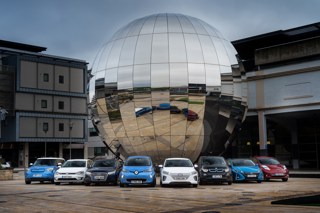Gain Solutions is claiming that poor preparation at both manufacturer and dealer network level could wreck converting electric vehicle (EV) interest into sales.
The company, which offers fleet and dealer solutions covering all aspects of fleet management, says its experience puts them in an ideal place to support manufacturers and dealers in managing the influx of EV interest.
Marcus Blakemore, managing director at Gain Solutions, says that while new EV sales maybe currently low, expectations are high and that the industry is reaching a tipping point with the demise of combustion engine cars.
“Alternative fuel vehicles – both hybrid and electric - account for less than 5% in the fleet sector and only marginally more amongst private buyers so it’s still niche,” said Blakemore. “But, with governments wanting to end the production of diesel and petrol vehicles and manufacturers launching new AFV vehicles, the next stage will be upon us very soon and the industry needs to be geared up for this.
“We’ve gained considerable experience and learned from the mistakes of the first generation of electric vehicles. The key takeout is that manufacturers and dealers need to get their houses in order if they are to satisfy the demand of customers’ interest in electric vehicles.”
Gain Solutions highlight five key issues motor manufacturers need to address when preparing for EV:
- Network readiness – get the sales process right as they’ll differ between dealerships and not all staff can handle change well.
- Educating the dealers and technicians – consumers will have already done their research by the time they come into the showroom, so ensure at least an EV champion is fully trained to answer questions.
- Pricing and rental structure to encourage uptake – EV will not gain significant share until they become more financially competitive, so be prepared to make the vehicles financially attractive.
- Protecting the residual value is key – plan demonstrator returns so they come back over a period and not overloading remarketing effort.
- Work closely with industry guides like CAP/Glass’s so they understand the concept, sales plan and marketing strategy to maximise values.
Blakemore continued: “Obviously other factors will come into play, but they are likely to be outside the manufacturers control such as sufficient charging network, but the UK Government is aiming for the majority of cars to be electric by 2030, so focus on the things you can affect.
“There will be ‘a chicken and egg situation’, where a lack of charging points could hold back demand and vice-versa.”
While the new car sector is grabbing the attention of EVs, Blakemore warns manufacturers not to lose sight of the used car marketing, where there will be a greater need for education of drivers and remarketers alike.
“With the first batch of alternative fuel vehicles now coming to market, it’s clear that there has been some confusion around how to market these vehicles or how best to resell them,” he said. “For example, initially there’s been misunderstanding among some remarketers about batteries and whether buyers had to lease or purchase them.
“Additionally, used car buyers may need convincing on the benefits of owning EVs or educating them on the differences of electric cars. For example, there is a perception that car batteries are the same as mobile phone batteries and that they will lose charge the older they get, when in fact this is not the case. A three-year-old car battery is just a good as a new one.”




















Login to comment
Comments
No comments have been made yet.